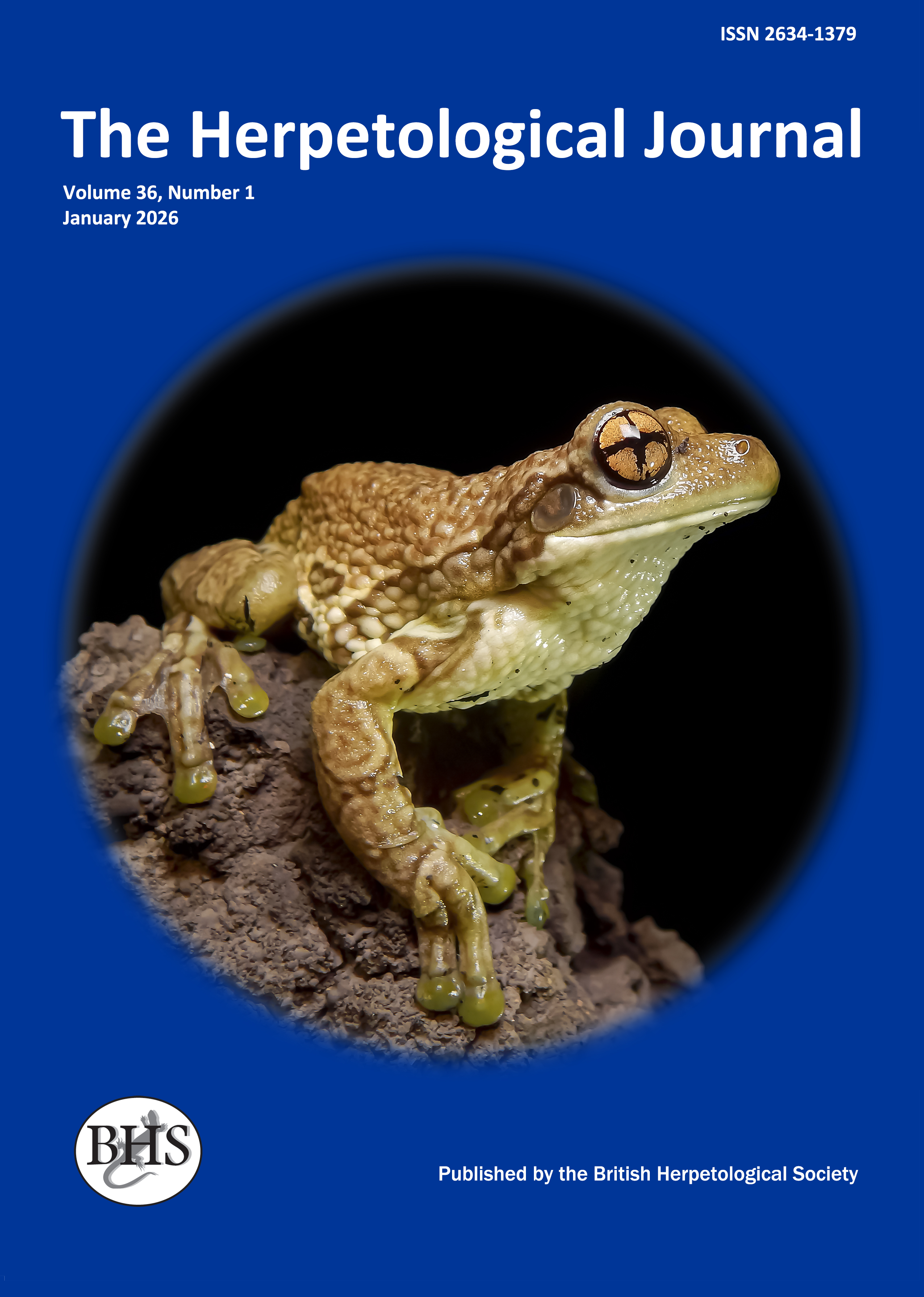
The Herpetological Journal
The Herpetological Journal is the Society's prestigious quarterly scientific journal. Articles are listed in Biological Abstracts, Current Awareness in Biological Sciences,Current Contents, Science Citation Index, and Zoological Record.
ISSN 0268-0130
2023 Impact Factor for the Herpetological Journal is 1.1, with the Journal sitting just below Quartile 2 in Zoology, at percentile 46.9
pdf 04. Polyploidy and parasitic infection in Xenopus species from western Uganda
1353 downloads
Open Access
pp.19-22
Authors: Joseph A. Jackson, Richard C. Tinsley And Stephen Kigoolo
Abstract: Three Xenopus taxa occur with sympatric or parapatric distributions in western Uganda. Two of these, X. wittei and X. vestitus, are polyploid relative to the third, X. laevis, and are considered to have arisen by allopolyploidization. This is a rare mechanism of speciation by which doubling of the genome in interspecific hybrids leads to the production of a self-maintaining hybrid lineage. As one of the parental lineages of both higher polyploid species may have been related to X. laevis, the co-occurrence of the three tax a might show the effects of hybrid host genomes on parasite specificity. Data are reported on the natural distribution of a monogenean fluke, Protopolystoma, occurring in these hosts at five sites in western Uganda. It is established that P. xenopodis, a common parasite of X. laevis, is absent from wild populations of X. vestitus and X. wittei in this area. Another Protopolystoma species infects all three hosts. The results of other recent host-specificity studies of parasites occurring in central African Xenopus species are also reviewed. Observed host-parasite relationships can be related to the genealogical origin of X. wittei and X. vestitus. Hybrid organisms might inherit susceptibility to parasites from both parents and thus be exposed to infection by a greater number of species. However, the available information suggests that allopolyploid clawed toads do not show such an effect and are resistant to some potential parasites from their presumed parental lineages. The possible use of parasites as "tags" for investigating the distribution and relationships of cryptic host species is also considered.

